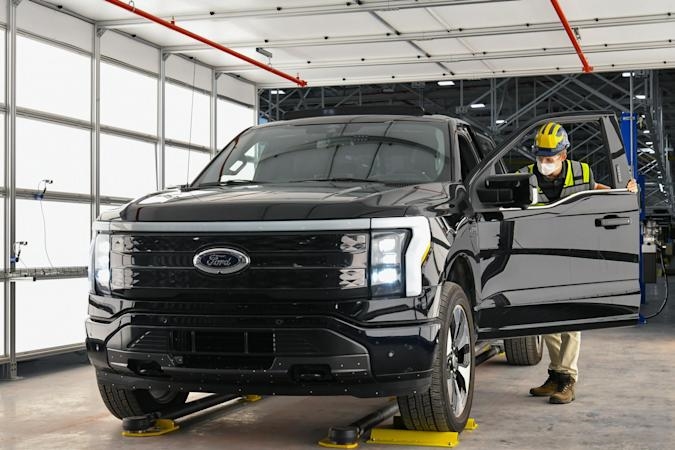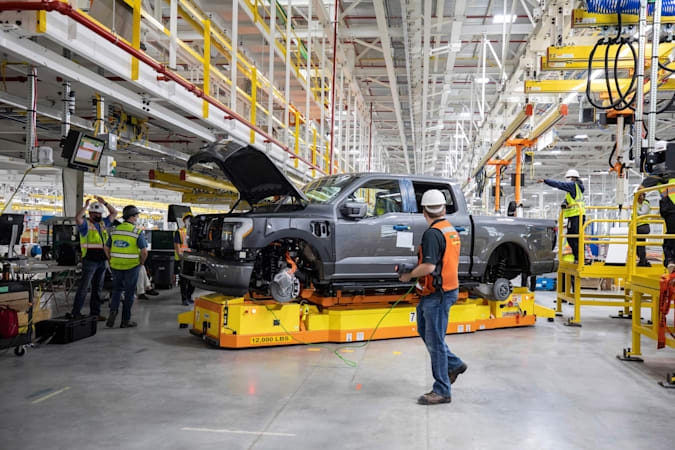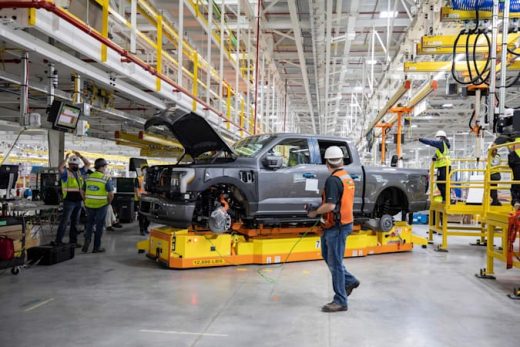Ford tries to fight F-150 Lightning scalpers by banning resales
Ford is doubling F-150 Lightning production to 150,000 vehicles a year
It follows news that Ford had to stop reservations due to demand.


Ford is making new efforts to double production capacity of the F-150 Lightning electric pickup to 150,000 vehicles per year, the company announced. That follows news from December that it capped pre-orders at 200,000 units, with CEO Jim Farley saying “we are completely oversubscribed with our battery electric vehicles.” In addition, the company will start inviting the first group of reservation holders to place orders for the F-150 Lightning starting on Thursday, January 6th.
To boost production, Ford said it created a small task force of employees from “manufacturing, purchasing, strategy, product development, and capacity planning” to find ways to accelerate production. It’s also working with key suppliers “to find ways to increase capacity of electric vehicle parts, including battery cells, battery trays and electric drive systems,” the company said in a press release.
The company noted that the F-150 Lightning is now in the the final pre-build phase before moving into mass production for retail and commercial customers, with deliveries starting this spring. The aim is to test production vehicles over a million miles or so in real-world customer conditions.

On the order side, Ford said it’s using a wave-by-wave reservation process, asking pre-order holders to watch for an invitation via email or check their Ford.com account. The automaker indicated that later pre-order holders might have to wait for vehicles from the following model year. (Ford also noted that over 75 percent of reservation holders were new to the brand.)
Deliveries of the 2022 F-150 Lightning pickup will begin in spring of 2022 with a starting MSRP of $39,974 before any available tax incentives. However, some reports indicate that some dealers may be dinging customers up to $30,000 extra to be among the first to receive their vehicles.
Ford recently announced that it would triple production of the Mustang Mach-E to reach 200,000 units per year by 2023, with plans to have the “global capacity to produce 600,000 BEVs annually.” To do that, it’s building what it calls its “most advanced, most efficient auto production facility in its 118-year history in Tennessee,” along with three battery plants built in collaboration with SK Innovation. All of that represents a total $11.4 billion investment with 11,000 new jobs created.
The F-150 Lightning is eligible for a full $7,500 US BEV tax credit as of today (along with any state subsidies), but Ford is expected to hit its 200,000 vehicle eligibility limit later this year. At that point, the credit will gradually be phased out unless new legislation is passed that would change the rules.
(24)


